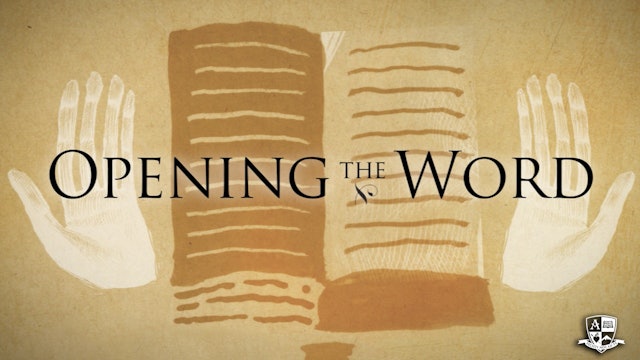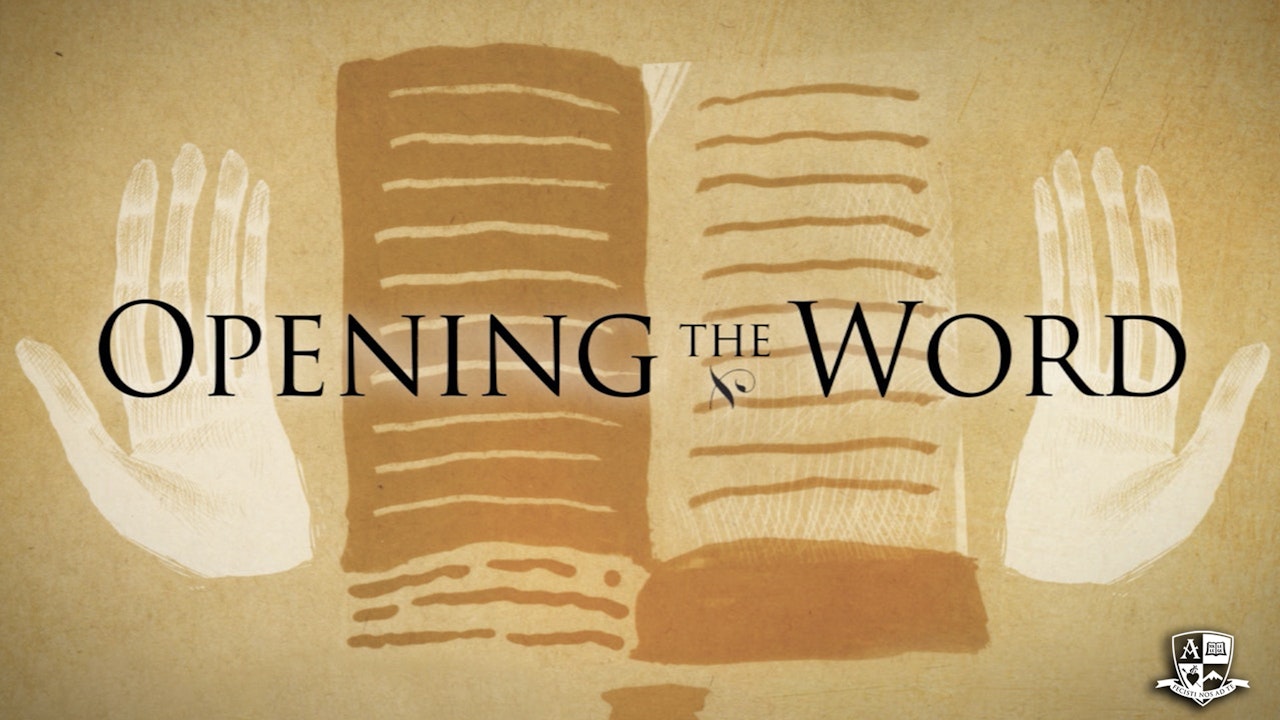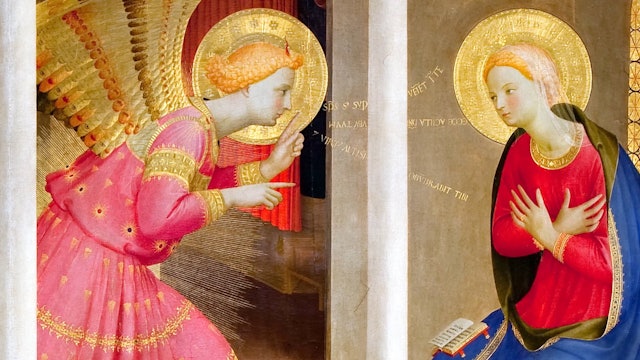Opening the Word
52 Episodes
Welcome to Opening the Word, a program offering prayer and insights for the Sunday Readings. Featuring a variety of experienced presenters including Dr. Tim Gray, Mary Healy, Scott Powell, Dr. Edward Sri, and Fr. John Riley, Martha Fernandez, and Ben Akers, the videos are designed to facilitate thought and discussion for personal faith formation or in the context of a group meeting. Personal Prayer Journals and a group Leader's Guides are also available to make the most of these Sunday Readings.
-
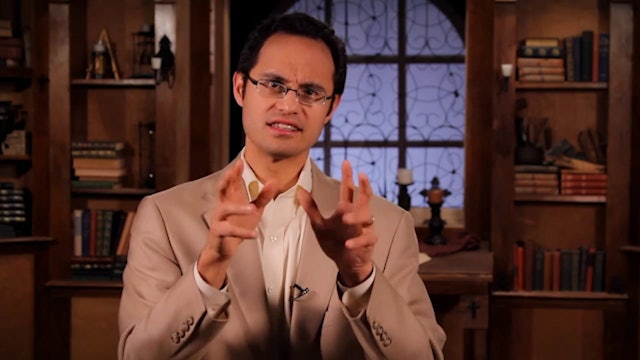 06:49Episode 1
06:49Episode 11st Sunday of Advent
Episode 1
Happy New Year! If this strikes you as a bit premature, it isn't really because this Sunday marks the start of the new Church year. In the Catholic Church, the first Sunday of Advent is the beginning of the cycle of readings, holy days, and holidays for roughly the next 365 days. It's also the ti...
-
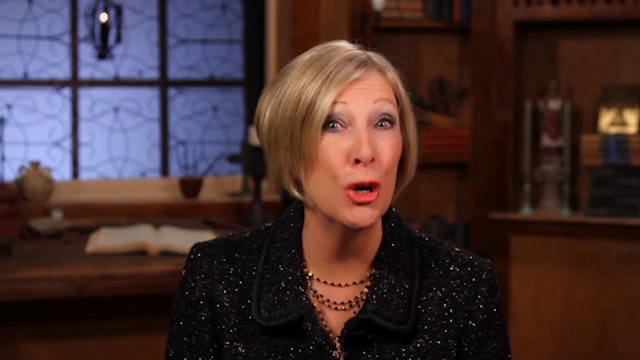 06:11Episode 2
06:11Episode 22nd Sunday of Advent
Episode 2
It may seem odd that, just as the secular world begins to celebrate peace and joy during the holiday season, we are asked in this week's Gospel to consider our sinfulness. The words of John the Baptist echo across the centuries: "Repent, for the kingdom of heaven is at hand!" Isn't John's talk ab...
-
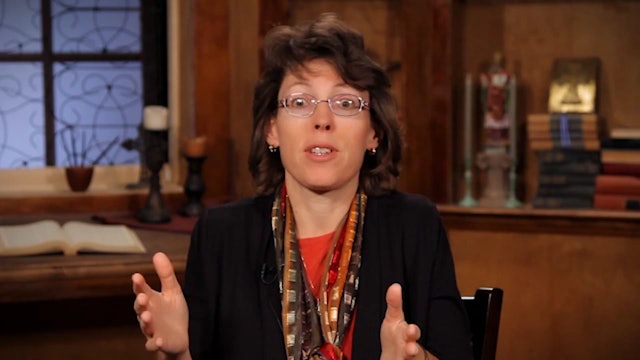 06:18Episode 3
06:18Episode 33rd Sunday of Advent
Episode 3
Who hasn't felt discouraged at some point in life? We all know how it feels when things don't go the way we want or expect. John the Baptist was feeling that way in today's Gospel. He is languishing in prison, wondering if all that he said and did had any meaning. Jesus didn't look like the commo...
-
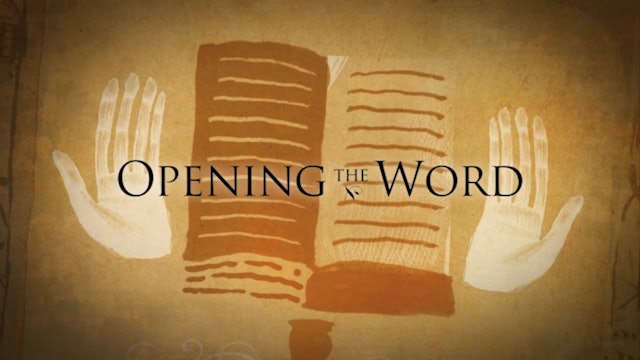 06:28Episode 4
06:28Episode 44th Sunday of Advent
Episode 4
This week's Gospel tells us how the "birth of Jesus Christ came about." More specifically, it tells us how an angel appeared to Joseph, explaining to him that Mary's son would save the people from their sins. While Joseph might not have understood it at the time, we know that Jesus is the fulfill...
-
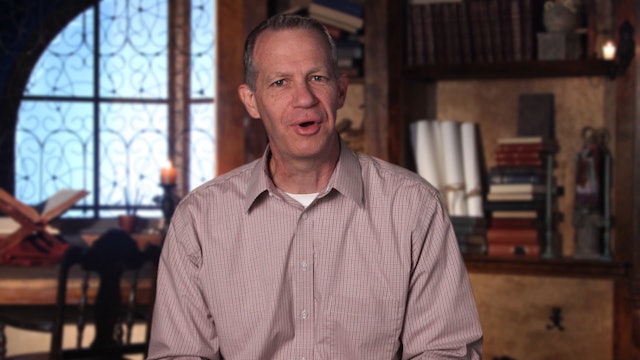 05:12Episode 5
05:12Episode 5Nativity of the Lord (Christmas)
Episode 5
When we think of the story of Christmas, we usually think of the "infancy narrative" of Luke's Gospel: Mary and Joseph traveling to Bethlehem, no room in the inn, Jesus laid in the manger, angels, and shepherds. This is the familiar account of Christ's birth, and we are surrounded by reminders of...
-
Solemnity of Mary, the Holy Mother of God
Episode 6
Today is a beautiful and important feast in the life of the Church. Our focus today isn't on starting the new year—although that is certainly reason for celebration, and what better way is there to start out the new year than by going to Mass? Our focus today is on Mary and her motherhood. There ...
-
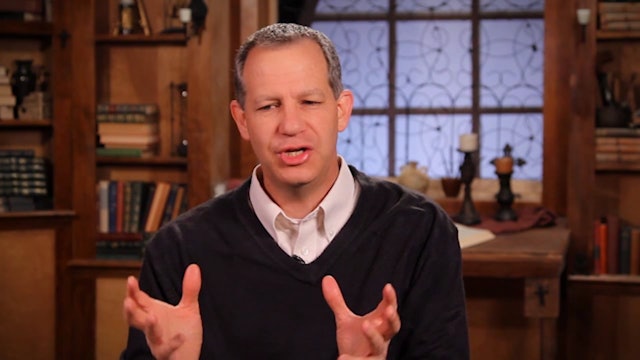 05:34Episode 7
05:34Episode 7The Epiphany of the Lord
Episode 7
The story of the magi, the three wise men, who traveled from the East to pay homage to Jesus as the King of the Jews, is part of our Christmas tradition. The magi, after a detour to see King Herod, brought their most valuable possessions to lay at the feet of the newborn King.
-
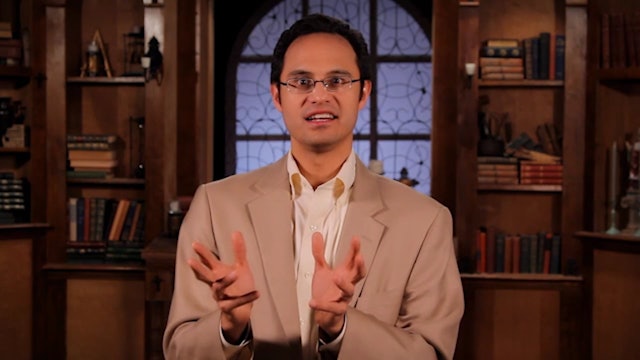 06:40Episode 8
06:40Episode 82nd Sunday in Ordinary Time
Episode 8
When we say the words of the Agnus Dei, or Lamb of God, during Mass, we are directly quoting John the Baptist.
The scene is set on the banks of the Jordan River. John has been gathering disciples by powerfully calling for repentance in light of the coming kingdom of God. One day, as he sees Jesus... -
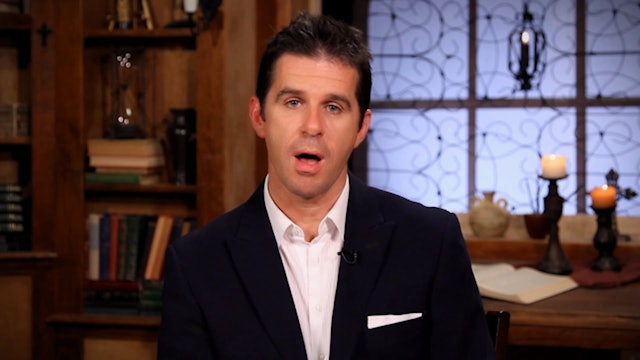 06:02Episode 9
06:02Episode 93rd Sunday in Ordinary Time
Episode 9
In today's Gospel, we see Jesus's reaction to the news that his cousin John has been arrested: he goes into seclusion back at home in Galilee, maybe for one last visit home with Mary, and then begins gathering the band of followers who will become his apostles.
-
 04:48Episode 10
04:48Episode 104th Sunday in Ordinary Time
Episode 10
-
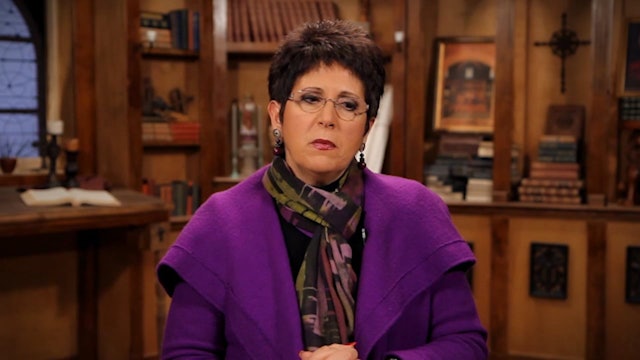 04:47Episode 11
04:47Episode 115th Sunday in Ordinary Time
Episode 11
In order to understand what Jesus is telling us in today's Gospel, we need to consider what salt and light meant in his time. Because we can buy all the salt we could ever need at our local grocery and we have light anytime we want at the flick of a switch, we may not realize how special both wer...
-
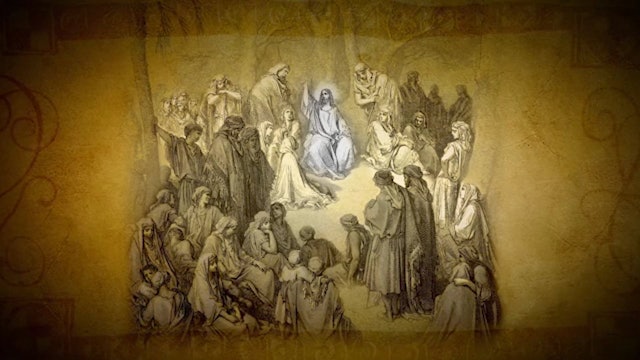 06:12Episode 12
06:12Episode 126th Sunday in Ordinary Time
Episode 12
This week's Gospel is all about the Law. It starts with the beginning of the Sermon on the Mount, which contains Jesus's teaching about loving your enemies, as well as the Beatitudes.
We may never have given any thought as to why Jesus gave these teachings on the side of a mountain, but the time ... -
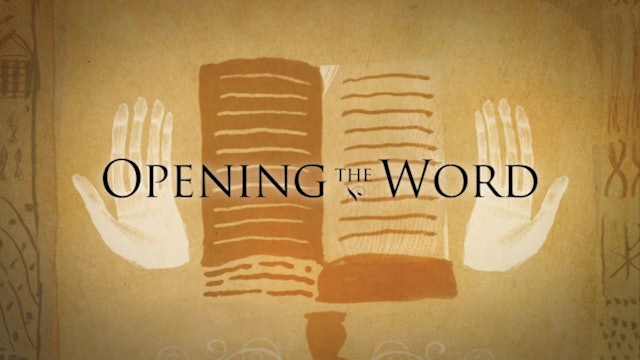 05:27Episode 13
05:27Episode 137th Sunday in Ordinary Time
Episode 13
In the Sermon on the Mount, Jesus lays out many of his basic life teachings. Several of them are extraordinarily difficult for us to understand, much less put into practice. Two of these are the famous "turn the other cheek" and "love your enemy" admonitions. To understand what Jesus is saying an...
-
 04:24Episode 14
04:24Episode 148th Sunday in Ordinary Time
Episode 14
It's fitting that this Gospel begins with the admonition reminding us that we cannot serve two masters (God and money) and then delves into Jesus's teaching on worry, because money is often at the top of our worry list. We worry about how to get money if we don't have enough, and we worry about h...
-
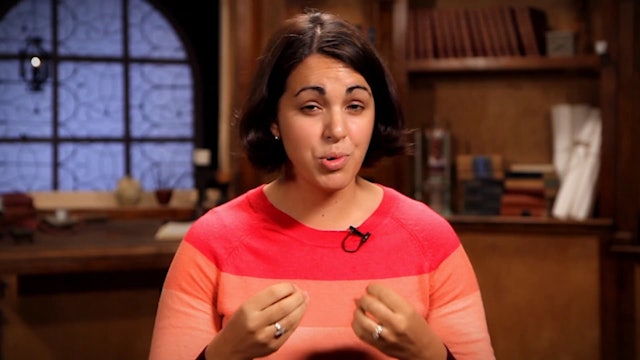 06:07Episode 15
06:07Episode 151st Sunday of Lent
Episode 15
We begin our Lenten readings in a most appropriate place: the desert. In the desert, life is stripped to basics and everything, including our weakness, is exposed. We are forced to stand alone and vulnerable before God. Our faith is put to the test. Little wonder, then, that Jesus went to the des...
-
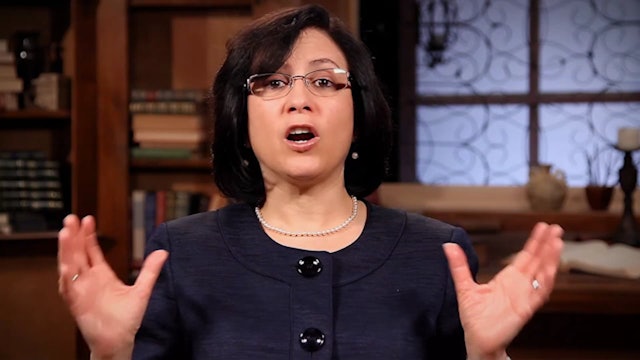 06:31Episode 16
06:31Episode 162nd Sunday of Lent
Episode 16
We tend to believe good times will last forever. While it's nice to be optimistic in that respect, we tend to worry that the bad times will last forever as well. The truth is that life is a series of contrasts—mountaintop experiences followed by deep valleys.
-
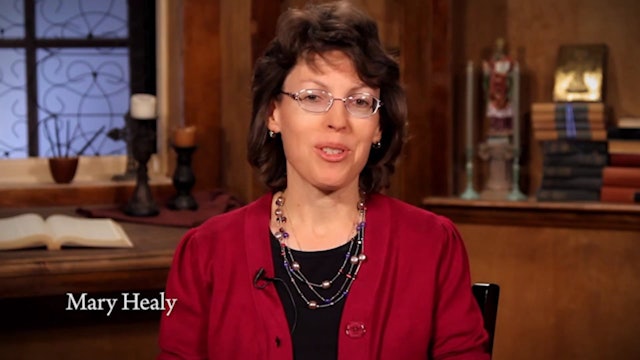 05:45Episode 17
05:45Episode 173rd Sunday of Lent
Episode 17
In ancient times, access to a reliable well was essential. Without a steady supply of clean water, life would be difficult, if not impossible. In this week's Gospel, we see Jesus sitting by a well in the country of Samaria. It's noon, and we can assume that he is hot and tired. We know he is thir...
-
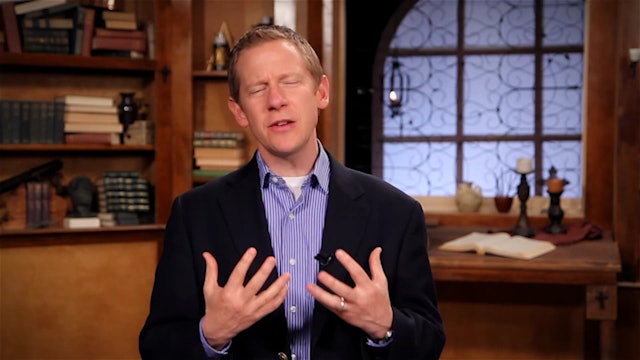 05:34Episode 18
05:34Episode 184th Sunday of Lent
Episode 18
This Gospel reminds us that the way we see best, is through the eyes of faith, for then we see the world the way God sees it. But first we have to recognize that without Jesus, we are truly blind.
-
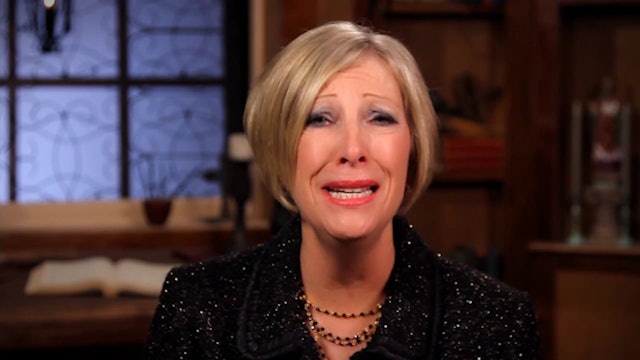 05:32Episode 19
05:32Episode 195th Sunday of Lent
Episode 19
This week's Gospel shows us Jesus wants us to let Him into all those places that have been rendered dead by sin. He wants to weep with us in his humanity, but also to reveal his divinity and bring about a total healing.
-
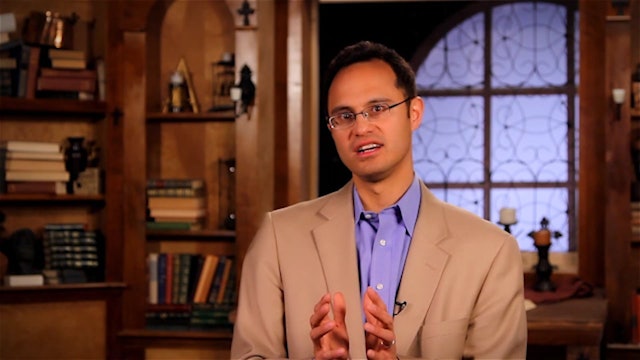 06:33Episode 20
06:33Episode 20Palm Sunday of the Passion of the Lord
Episode 20
We all are called to love God and do the Father's will, even when it is difficult. But love involves sacrifice—dying to self and making sacrifices for the one we love. We can use the example of Christ in the Garden to accept our crosses well.
-
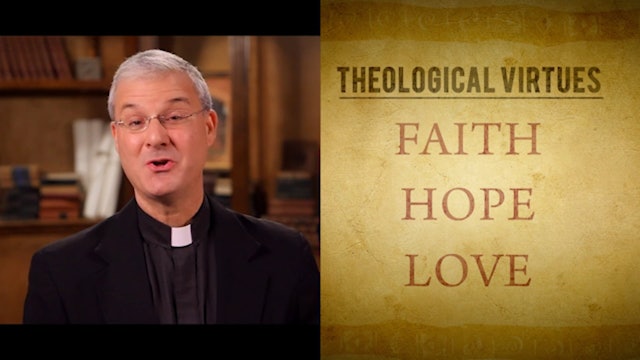 06:45Episode 21
06:45Episode 21Easter Sunday
Episode 21
Though the mysteries of the Faith are not readily understood, we should ask for the grace to believe—to grow in the virtues of Faith, Hope, and Charity. With these gifts, we have the power to recognize the importance of the Resurrection, and how it can transform our lives.
Alleluia, he is risen. ... -
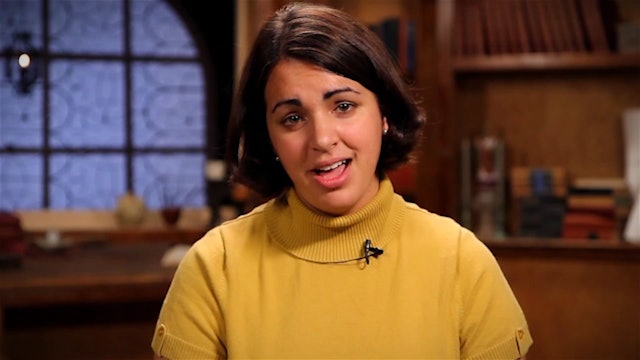 05:38Episode 22
05:38Episode 222nd Sunday of Easter
Episode 22
The second Sunday after Easter is designated Divine Mercy Sunday. It's a recent feast in the Church, instituted in 2000 by Pope St. John Paul II. He felt that immediately after Easter, while the Paschal mysteries were fresh in our hearts, we needed an opportunity to reflect more deeply on God's g...
-
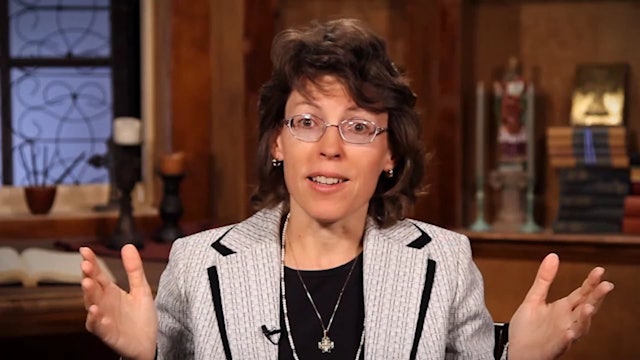 06:21Episode 23
06:21Episode 233rd Sunday of Easter
Episode 23
The two disciples on the road to Emmaus in today’s reading came to know the Lord in the “breaking of the bread”—the Eucharist. We can see that their encounter with Jesus that day parallels the way Jesus comes to meet us in every Mass.
-
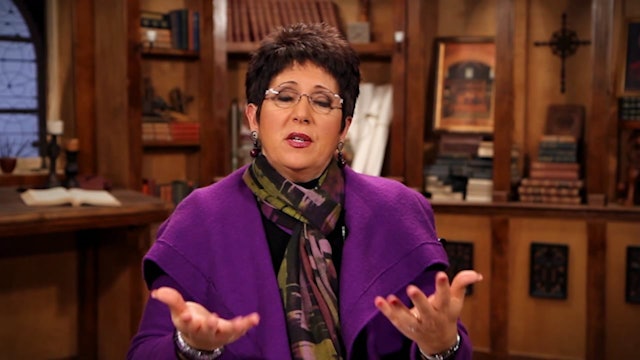 04:53Episode 24
04:53Episode 244th Sunday of Easter
Episode 24
We like the idea of Jesus as the Good Shepherd, but we seldom like the idea of being sheep—people who blindly follow anyone or anything. However, that's not what sheep and shepherds are like in real life.

